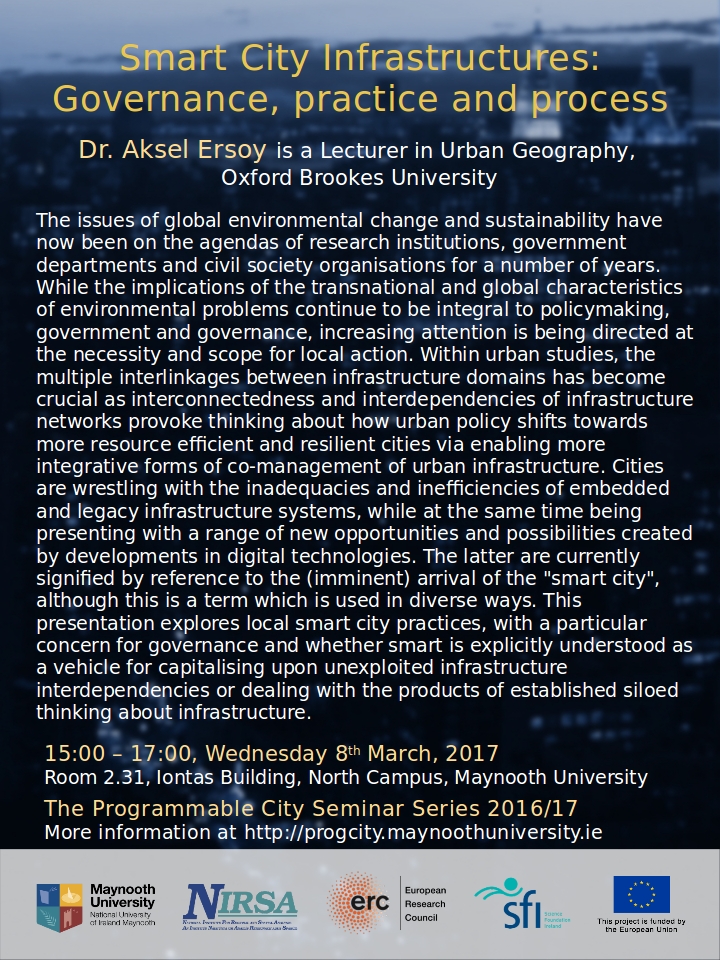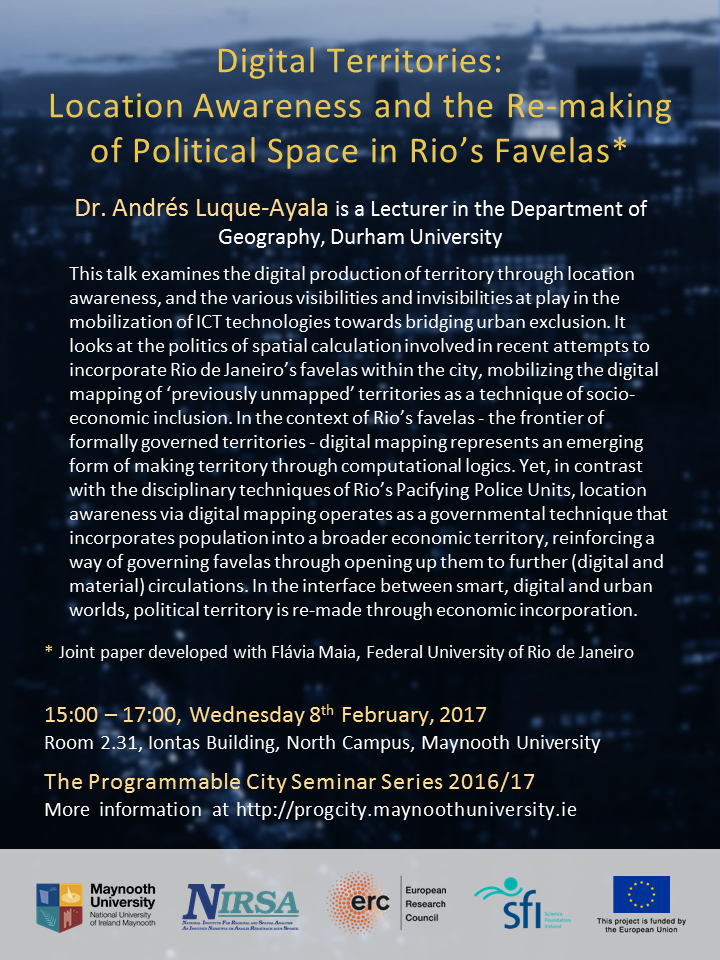We are delighted to announce that ProgCity postdoc researchers Claudio Coletta, Liam Heaphy and Sung-Yueh Perng have been awarded the IRC Ulysses Grant 2016 to start a new research collaboration between the Centre de Sociologie de l’Innovation (i3-CSI) at the École des Mines in Paris, and the National Institute for Regional and Spatial Analysis (NIRSA) in Maynooth University.
The collaborative project, entitled “Reshaping cities through data and experiments”, includes workshops and a series of coordinated publications that will advance our understanding of the contemporary city in relation to urban data and experimentation. The first workshop will take place in Maynooth University (29-31 May 2017) and the second one in the École des Mines, in October 2017.
The overall questions that the collaboration seeks to address are:
1. What data are generated by cities in the context of smart cities and core services such as transport? For whom are these data created and on what infrastructure are they dependent?
2. How are the experiments and demonstrations for urban change organised and accounted? Which actors are involved and how do they engage?
3. How experiments and demonstration through data affect the everyday life of cities, their management and governance practices?
The scientific exchange will explore the following three intertwined aspects that are critical to urban management, governance and everyday life in cities: civic engagement, mobility and automated management.
With respect to civic engagement, the two groups will reflect upon specific ways in which civic initiatives seek to obtain, repurpose and act on urban data for improving quality of life. With respect to mobility, the two groups will discuss the convergence of organisational, technological, political and economic dimensions in initiatives dedicated to innovative mobility practices and demonstrations. They will investigate (1) how such global phenomena are related to wider public or private development strategies (2) how “best practices”, business plans or technical systems circulate from one place to another. With respect to automated management, the two groups will explore the testing of new urban services where the urban environment is used as a living laboratory, such as IoT (Internet of Things) technologies for measuring air pollution and traffic monitoring. Thus conceived the project has two main projected outcomes: to produce scientific and transferable knowledge on the shaping of contemporary cities and to create awareness on the implications of experimental and data-driven urbanism.
Claudio, Liam and Sung-Yueh are honoured and grateful to the IRC for this great opportunity to advance their research on smart cities and build new international collaborations.
 |
 |



